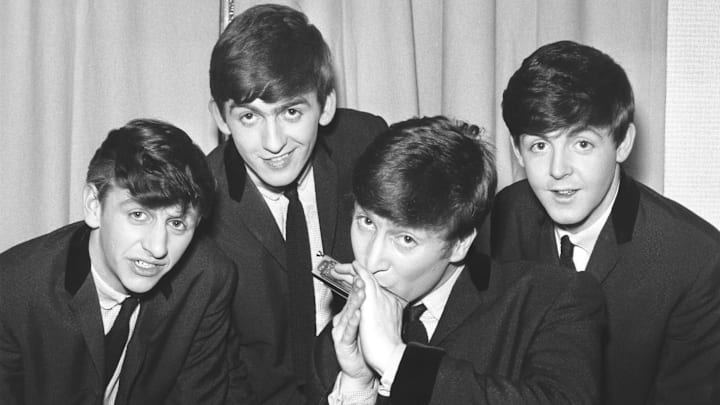One of the most legendary music acts of all time, The Beatles, has cemented their status as chart-toppers, boasting unparalleled sales across the globe. Despite the passage of decades, their albums continue to resonate with audiences worldwide, particularly in the United States, where their timeless tunes remain cherished by millions. This week, according to Forbes, Billboard's rock charts witness a surge in popularity for two collections from The Beatles, shedding light on the enduring appeal of the band.
However, amidst this resurgence lies a perplexing trend: while certain rankings may show an ascent, actual sales or consumption figures might not necessarily follow suit, depending on various factors. The Beatles' compilation 1962-1966, encapsulating their early hits, climbs the ranks on Billboard's Top Rock & Alternative Albums chart, ascending from No. 20 to No. 18. Similarly, it makes gains on the Top Rock Albums list, rising from No. 16 to No. 14. Meanwhile, its counterpart, 1967-1970, also sees an uptick on one of the charts, inching up one spot to No. 34 on the Top Rock & Alternative Albums chart in its nineteenth week on the roster.
While both compilations enjoy a boost on the rock-focused charts, they encounter a different scenario on the Billboard 200, which tracks overall album consumption in the country. Here, they face stiffer competition, resulting in a less robust performance. On the Billboard 200, 1962-1966 remains relatively stagnant at No. 94, with 10,995 units moved, representing a marginal 2.6% decrease from the previous period. Conversely, 1967-1970 experiences a decline on the Billboard 200, slipping from No. 148 to No. 152, despite selling 8,841 equivalent units last week, marking a decrease of just under 2%.
The Beatles are still going strong...but there's Swift competiton
In essence, while The Beatles' albums witness a resurgence on the genre-specific charts, their overall performance on the Billboard 200 highlights the nuanced nature of music consumption trends and the legacy of this iconic band.That being said, it's still apparently true that Taylor Swift beat The Beatles "for the most weeks spent in the top 10 on the Billboard 200 albums chart..." (That's why I called it "Swift competition." Get it? Oh, and yes, her concerts also can create seismic impacts.)
